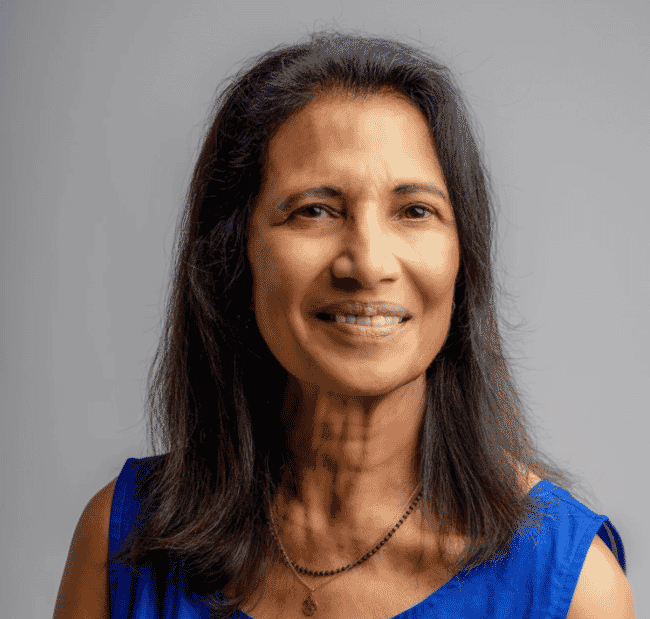
She is also a UN Food Systems Champion and serves as the vice-chair for action track 4: Advance Equitable Livelihoods of the upcoming 2021 UN Food Systems Summit. In addition, Dr Thilsted is a member of the High-Level Panel of Experts on Food Security and Nutrition and advises the High Level Panel for a Sustainable Ocean Economy.
Thilsted, who is global lead for nutrition and public health at WorldFish, was chosen for improving the quality, quantity, and availability of food in the world thanks to her pioneering scientific work on nutrition, fish, and aquatic food systems. Her research insights and landmark innovations have led to the development of nutrition-sensitive approaches in aquatic food systems and integrated food production from land and water. A native of Trinidad and Tobago and a citizen of Denmark, she is also the first woman of Asian heritage to be awarded the World Food Prize.
A true food systems thinker with many research innovations under her belt, the impact of Thilsted's research crosses over different disciplines and sectors. She is credited with developing the pond polyculture system, a cost-effective and environmentally sustainable way of farming small and large fish species together in homestead ponds, water bodies, and rice fields. This innovation which helped to significantly increase the quality, diversity, and quantity of available food in many local communities, prompted a large-scale shift towards aquaculture production in Bangladesh. In addition, it led the Government of Bangladesh to recognize the pond polyculture system as a critical innovation for meeting national targets to beat hunger, malnutrition, gender inequality, and poverty.
Working together with local communities and private sector actors, Thilsted guided the development of innovative, affordable, and culturally acceptable fish-based products suitable for consumption by young children and lactating women. She discovered these products were nutrition powerhouses in their own right, and – when consumed with other foods – they also helped increase the absorption or bioavailability of other essential micronutrients found in vegetables and rice, such as iron and zinc.
Often referred to as the "Nobel Prize for Food and Agriculture," the World Food Prize is the most prominent global award recognizing an individual who has enhanced human development and confronted global hunger through improving the quality, quantity, and availability of food for all.
Thilsted’s research demonstrated that the high levels of multiple essential micronutrients and fatty acids in these affordable and locally available foods offered life-changing benefits for children's cognitive development in their first 1,000 days of life and the nutrition and health of their mothers. From this breakthrough, Thilsted went on to develop nutrition-sensitive approaches and innovations to food production from land and water that have improved the diets, nutrition, and health of millions of vulnerable women, men, and children living in low- and middle-income countries across Asia, Africa, and the Pacific.
Speaking at the Laureate Announcement event by the World Food Prize Foundation today, US Secretary of State Antony Blinken said: “Dr Thilsted figured out how these nutrient-rich small fish can be raised locally and inexpensively. Now, millions of low-income families across many countries, including Bangladesh, Cambodia, India, Nepal, Burma, Zambia, Malawi, are eating small fish regularly, dried and fresh, in everything from chutneys to porridge, giving kids and breastfeeding mothers key nutrients that will protect children for a lifetime. That is all thanks to her.”
On being named the 2021 World Food Prize Laureate, Thilsted said: “I am truly honored to receive this award. I feel humbled to be placed in such distinguished ranks of past laureates. As a scientist, I feel this award is an important recognition of the essential but often overlooked role of fish and aquatic food systems in agricultural research for development. This award is a major acknowledgment of the urgent need to prioritize fish and aquatic foods in nutrition policies and program interventions at national and global levels.
"Aquatic foods offer life-changing opportunities for millions of vulnerable women, children, and men to be healthy and well-nourished. It is also an important acknowledgment for the insights, voices, and perspectives of millions of people from low-and middle-income countries. These are crucial to shaping the global discourse on nutrition and public health, as well as our shared call to action for a sustainable food systems transformation towards healthier and resilient diets that work for people and the planet.”
